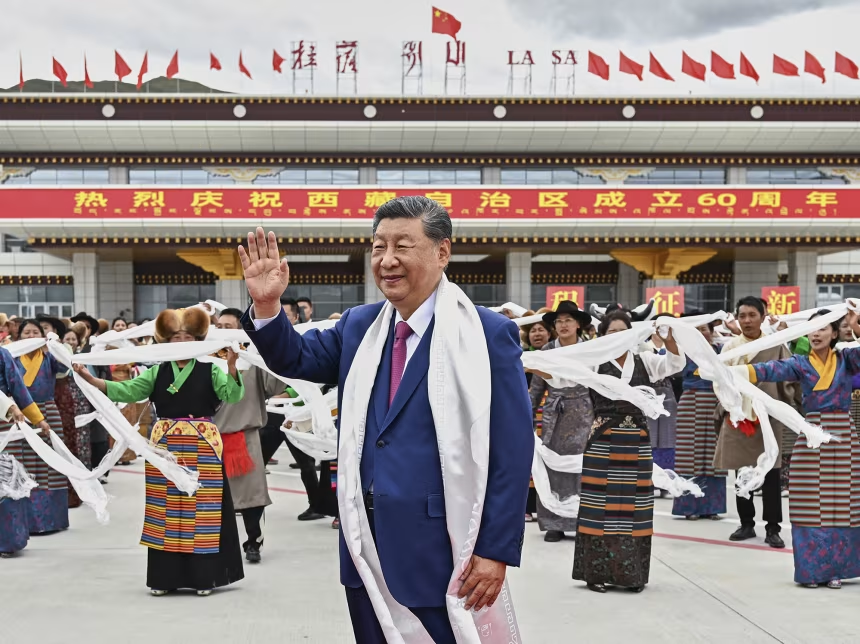Chinese President Xi Jinping paid a rare visit to Lhasa to commemorate the 60th anniversary of Tibet becoming an autonomous region under Beijing’s control. It was only his second trip as president to the region, and it came as part of a carefully staged extravaganza.
Xi focused on themes of political stability, religious harmony, and the promotion of a “modern socialist Tibet” where ethnic unity and prosperity reign. The celebrations included large-scale cultural performances, parades in front of the Potala Palace, and banners praising Communist Party leadership and Xi’s guiding ideology. Placards urged hardline goals like development, border security, and the ecological protection of the Tibetan plateau.
While state media and government sources framed the visit as a symbol of progress and unity, critics spotlighted the ongoing political crackdown in Tibet. They point to restrictions on religious freedoms, the suppression of Tibetan language and culture, and China’s insistence on controlling the succession of the Dalai Lama—a move that directly contradicts the spiritual authority of the Tibetan people.
Amid broader diplomatic activity involving China and neighboring countries, Xi’s visit underlines Tibet’s political and symbolic importance as a domain where state authority and nationalist messaging are emphasized above all else.


